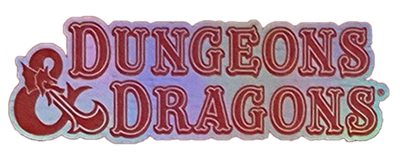(Creating it.) |
m (→Believability: fixed pronouns.) |
||
| Line 15: | Line 15: | ||
'''Telling the truth:''' |
'''Telling the truth:''' |
||
| − | *The player (or whoever is speaking) makes a bluff check with |
+ | *The player (or whoever is speaking) makes a bluff check with their modifiers and the situational modifiers, as normal. |
*Same as before, the person you are trying to convince makes a d20 roll, and subtracts their sense motive modifiers (Wisdom modifier, skill modifier, misc modifiers) from the roll result. |
*Same as before, the person you are trying to convince makes a d20 roll, and subtracts their sense motive modifiers (Wisdom modifier, skill modifier, misc modifiers) from the roll result. |
||
*If your bluff check beats their (probably negatively) modified d20 roll, then they believe you. |
*If your bluff check beats their (probably negatively) modified d20 roll, then they believe you. |
||
Revision as of 18:47, 19 May 2010
| Aelaris (talk) | |
|---|---|
| Date Created: | 5/19/10 |
| Status: | First working draft. |
| Editing: | Please feel free to edit constructively! |
Believability
For some reason, there's a difference between telling the truth, and not telling the truth. Which I think silly.
So bluff is now for lying and telling the truth:
Telling a lie:
- Same as before.
Telling the truth:
- The player (or whoever is speaking) makes a bluff check with their modifiers and the situational modifiers, as normal.
- Same as before, the person you are trying to convince makes a d20 roll, and subtracts their sense motive modifiers (Wisdom modifier, skill modifier, misc modifiers) from the roll result.
- If your bluff check beats their (probably negatively) modified d20 roll, then they believe you.
This represents the factors of:
- The speaker's ability to be convincing (The speaker's bluff mods).
- The situation and the believability of the claim. (mods from the way that bluff works)
- The ability of the recipient to discern truth from lies (the sense motive mods of the recipient)
- Random variance (the d20 rolls).
Note that this can also go any which way: When the players roll their sense motive checks on what some person is saying, then depending on whether the person is telling the truth, just apply the mods the other way or not. They cannot even rely on whether the d20 roll is high - it just determines how suspicious they are. (They can, however, do the math and logic thing to figure it out, but that's a bit complicated.)
Hope this enriches lying and trying to convince people of the truth.
(And sorry about buffing Bluff even more.)
Back to Main Page → 3.5e Homebrew → Variant Rules
